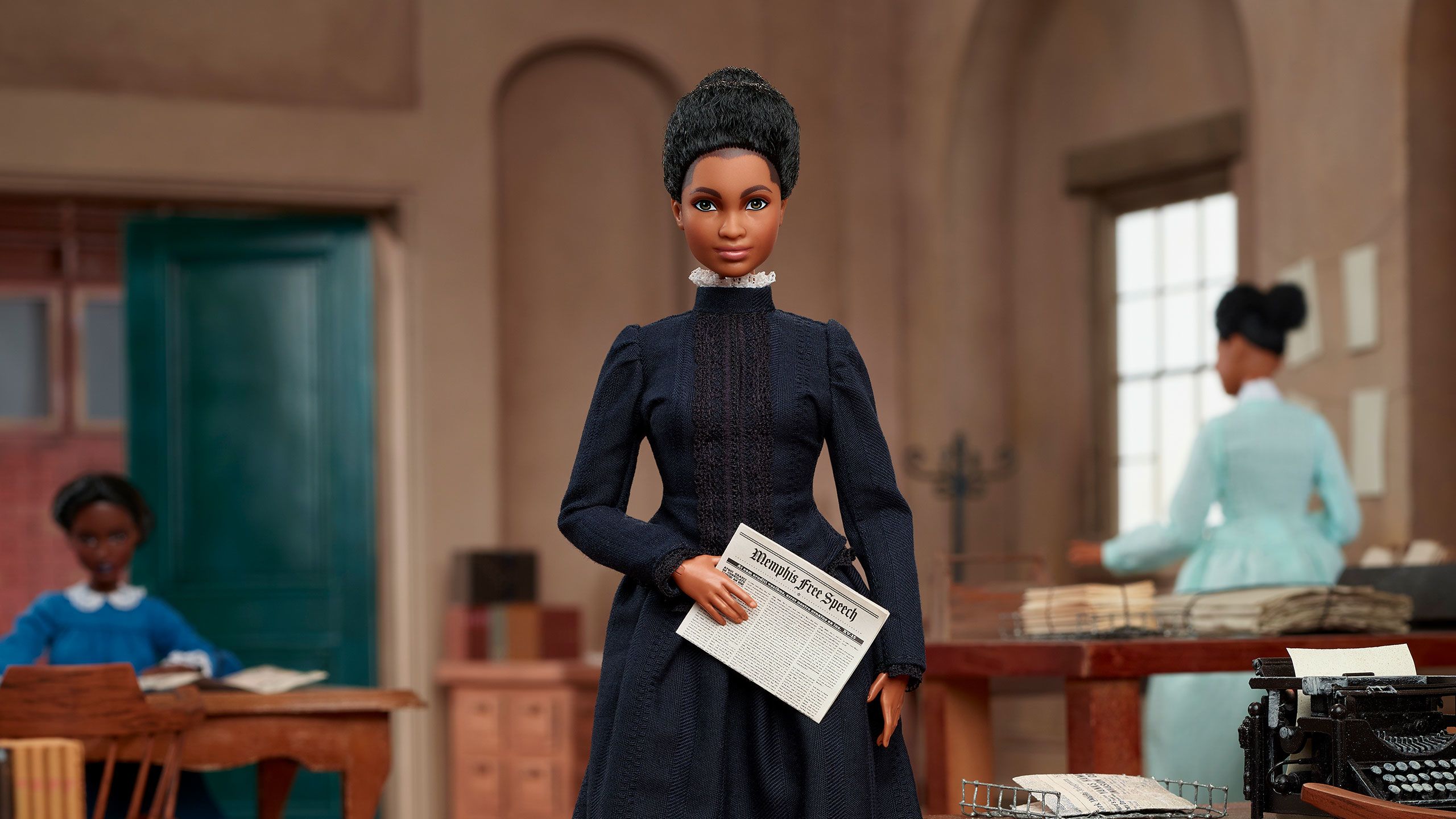Rutgers–Camden Researcher Weighs in on Ida B. Wells Barbie Doll
Professor Markey says the collection still lacks accurate representation

Throughout Black History Month, Rutgers University–Camden’s RePRESENTation Matters project is using storytelling to explore the significance of representation in our quest for true racial equality. Rutgers–Camden researcher Charlotte Markey reflects on the new Ida B. Wells Barbie doll and how the doll makes strides in our march toward true racial equality.
Ida B. Wells-Barnett was the founder of the National Association for the Advancement of Colored People (NAACP) and fought sexism, violence, and racism in America. Those achievements make her a role model for Black women today, and a fitting member of Mattel’s Inspiring Women Series of dolls for girls.

“She worked for others’ representation, so it is only fitting then that Wells is now the one being represented.”
–Charlotte Markey, Ph.D.
Markey argued, however, that the Ida B. Wells Barbie doll is a gesture that hasn’t fulfilled its mission; it still lacks accurate representations of what these trailblazing women looked like.
The dolls in the series are made to fit the typical American vision of women: slender, fashionable, and beautiful. Markey said that Mattel has, in essence, “whitewashed” the figure to make her more appealing to the mass market.
Markey feels that Mattel’s Inspiring Women Series perpetuates the problem of idealized female body images. What it all comes down to, said Markey, is that today’s children deserve more — and that means dolls that look like real people with diverse coloring, body shapes, and overall appearances—imperfections and all.

Charlotte Markey, professor of psychology. Image by Caryn Schwartz.
Charlotte Markey, professor of psychology. Image by Caryn Schwartz.

To date, Mattel has modeled 27 Barbies after inspiring women. Other Black role model dolls in the collection include Olympian Gabby Douglas and Misty Copeland, the first African American principal dancer with the American Ballet Theater.

Olympian Gabby Douglas (left) and Misty Copeland (right). Images courtesy Mattel Inc.
Olympian Gabby Douglas (left) and Misty Copeland (right). Images courtesy Mattel Inc.

Ida B. Wells. Image courtesy of the Special Collections Research Center, University of Chicago Library
Ida B. Wells. Image courtesy of the Special Collections Research Center, University of Chicago Library
The RePRESENTation Matters series honors African Americans who serve as inspirational role models and who have broken down barriers in the disciplines of art, science, law, and health care. The stories also showcase the research and scholarship of Rutgers University–Camden faculty. “Present” is at the heart of representation: When we are fully aware of and engaged in the opportunities available to us, our aspirations can take shape.
“My hope is that the RePRESENTation Matters project sparks conversation about why representation matters in the effort to overcome systemic racism.”
–Chancellor Antonio D. Tillis
All photos of the Ida B. Wells Barbie, Gabby Douglas, and Misty Copeland are courtesy of Mattel Inc. All photos of Ida B. Wells courtesy of the Special Collections Research Center, University of Chicago Library
Creative Design: Douglas Shelton